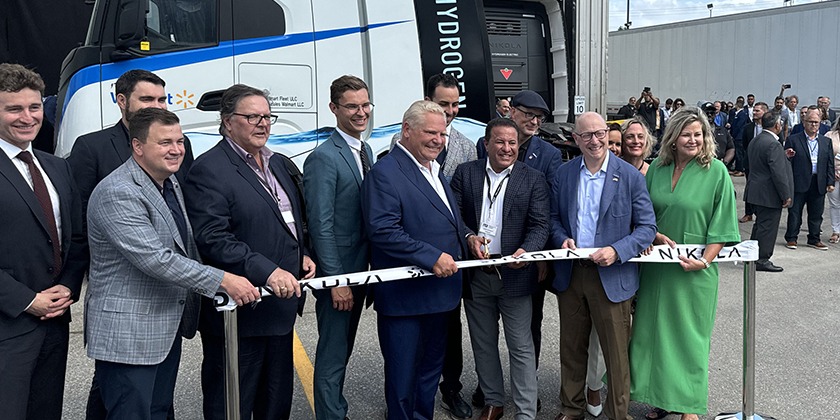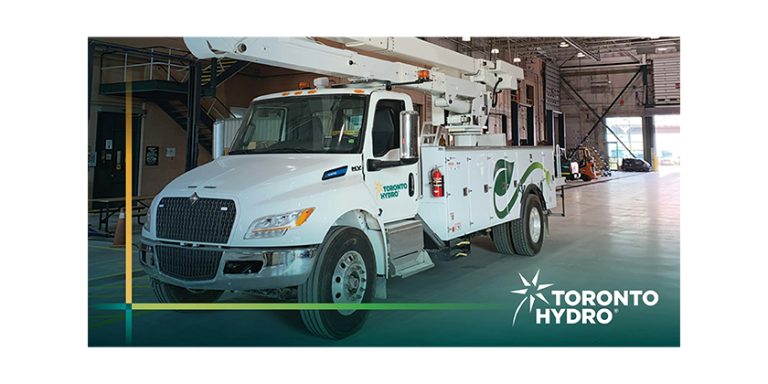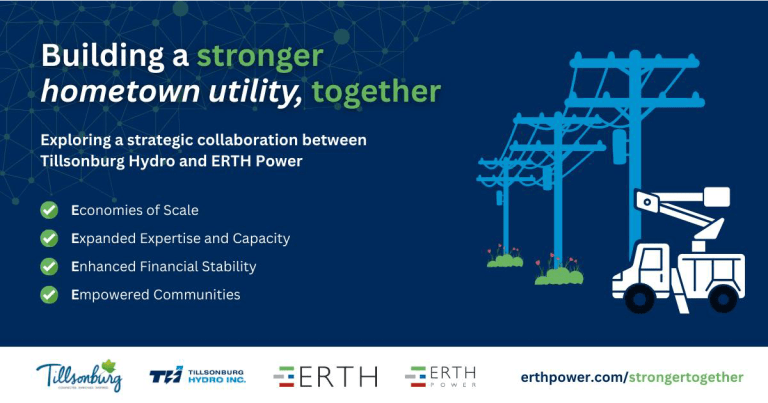Nikola and ITD Industries Open First Hydrogen Refueling Station in Ontario

July 31, 2024
Nikola Corporation (Nasdaq: NKLA), a global leader in zero-emissions transportation and energy supply and infrastructure solutions, via the HYLA brand, together with ITD Industries, opened the first commercial hydrogen refueling station for the heavy-duty transportation sector in Ontario. The station, located at ITD Industries’ headquarters in Etobicoke, ON, is situated at 161 The Westmall, a pivotal location near Highway 401, Highway 427, and the Queen Elizabeth Highway (QEW).
Notable guests in attendance at a special launch event included Hon. Doug Ford, Premier of Ontario, Hon. Sam Oosterhoff, Associate Minister of Energy-Intensive Industries of Ontario and other provincial and federal dignitaries, as well as notable business leaders within the energy, retail and transportation industry such as Walmart Canada, Canadian Tire and Loblaws.
This station marks a significant milestone for Nikola and ITD Energy, a subsidiary of ITD Industries, which is the first Canadian dealer in the Nikola sales and service network. The station uses a 700-bar pressure-fill system, allowing hydrogen fuel to be dispensed into onboard storage for long-range vehicles, such as the Nikola hydrogen fuel cell electric Class 8 truck.
“It is inspiring to witness the vision of a hydrogen-powered future coming to life with the opening of this refueling station in the greater Toronto area,” said Nikola CEO Steve Girsky. “Collaborating with ITD Industries, we are not only providing trucks but also the fueling solutions to support the entire hydrogen ecosystem. This station marks significant progress in our mission to build a comprehensive hydrogen infrastructure in North America.”
Together with partners such as the Canadian Hydrogen Association and other private and public organizations, including Walmart Canada, which recently became the first major retailer in Canada to use a Nikola hydrogen fuel cell electric truck in its fleet, Nikola and ITD Industries are spearheading the transformation of Ontario and Canada’s commercial transportation sector towards a carbon-free future.
“The presence of so many distinguished public and private figures, underlines and validates the importance of this station launch to the future of long-haul carbon-free commercial transportation. This station is the first of several ITD is planning on erecting across Ontario with Nikola Corporation as we aim to build a hydrogen fueling corridor connecting Windsor to Montreal,” mentioned Philip Turi, COO of ITD Industries during the opening remarks.
“Congratulations to Nikola Corporation and ITD Industries on building the first commercial hydrogen refueling station for the heavy-duty transportation sector in Ontario,” said Premier Doug Ford. “This milestone marks a significant step as we work together with businesses, industry and all levels of government to build reliable, affordable, and clean energy solutions to power our province’s growth.”
Nikola anticipates significant growth in Canada with eligibility received for the Incentives for Medium- and Heavy-Duty Zero-Emission Vehicles (iMHZEV) Program. The iMHZEV program offers Canadian organizations (for profit and non-profit), in all provinces, territories and municipalities, up to $200,000 (CAD) in incentives towards the purchase or lease of the Nikola hydrogen fuel cell electric truck and up to $150,000 (CAD) in incentives towards the purchase or lease of the Nikola battery-electric truck.
Furthermore, Nikola is eligible for the Clean BC Go Electric Rebates in the province of British Columbia, with $150,000 (CAD) in incentives towards the purchase or lease of both the Nikola hydrogen fuel cell and battery-electric trucks. This provincial incentive is stackable with the iMHZEV federal incentive.
Earlier this year, Alberta’s first commercial hydrogen refueling station was unveiled signaling the beginning of an expanded hydrogen refueling network across Western Canada. This HYLA refueling station is situated along Alberta’s two largest urban centers, the Edmonton region and Calgary, and will play a key role in decarbonizing one of Western Canada’s busiest highways.








